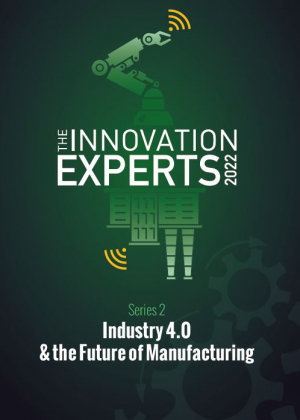25 Years of PC-Based Control
26th November 2009
Source:
Longwatch, Inc.
In a 10 x 10 ft booth under the escalator at the 1984 ISA Show in Houston, Texas—25 years ago this past October—Steve Rubin, president of Intellution, Inc., and two of his engineers, Al Chisholm and Jim Welch, introduced The FIX: The Fully Integrated Control System, the world’s first configurable PC-based HMI/SCADA software program. They revolutionized automation and process control.
The crew had an IBM-PC with 640K of memory and two floppy disk drives, running a “multitasking shell” that Chisholm had developed for MS-DOS, and communicating with local I/O. It was the first user-configurable, “all in one” human-machine-interface (HMI) and control software package for the IBM PC platform. Across the aisle from the fledgling company was a booth running an electric railroad using an Apple 2e. Elsewhere in the show hall were two other PC-based suppliers, OnSpec and Centec, and a handful of proprietary HMI/SCADA systems including US Data and Modicon.
Dave Nelson and Paul Vanslette were back at “the fish house” in Westwood, Massachusetts, in the shadow of Analog Devices’ headquarters, holding down the fort for the small, self-funded startup. Development of an I/O driver toolkit was underway (the precursor of OPC) as were interfaces to BASIC, the C language (C++ wasn’t available then) and, yes, FORTRAN.
“We’re cautiously optimistic,” Al said to his wife after the ISA show closed. With the introduction of The FIX, Intellution quickly broke to the front of the pack of a small handful of industrial software suppliers. The 96 sales leads captured at the first ISA show turned into a worldwide distribution channel, hundreds of thousands of copies of the robust software helping 75% of the Fortune 500 companies become more efficient in their manufacturing operations.
The success of The Fix spawned dozens of similar programs, including Wonderware, Citect and InduSoft, and changed the face of process control and automation forever. No longer were control engineers tied to the ultra-expensive workstations and proprietary software of the major distributed control system (DCS) vendors. The Fix and similar software made it possible to use standard PC hardware, the Microsoft operating system, and friendly, easy-to-use HMI development software.
Over the course of 25 years, the Intellution team brought many other innovations to the industrial software market: FIX ACE, a co-processor card that segmented the real-time data operations into a protected environment; FIX DMACS, the first truly distributed system that enabled personal computers to take on a major role in industrial data acquisition and control applications; and ultimately, iFIX – an automation application platform.
Today, proprietary workstations and operating systems have virtually disappeared from the process control and automation world. All the major DCS and automation vendors use PC-based workstations and HMI/SCADA software. In fact, DCS vendors gobbled up most of the software companies: Steve Rubin’s Intellution was acquired by Emerson in 1995, Wonderware was acquired by Invensys, and Citect was acquired by Schneider Electric. Now a part of General Electric, Intellution continues to deliver robust, highly-functional industrial software for a broad variety of applications.
“Our biggest problem was convincing skeptical engineers that MS-DOS was reliable enough to use in a plant,” recalls Rubin. “Our engineers had devised a way to partition MS-DOS so that normal Microsoft programs ran in one partition in the computer, while the HMI/SCADA software ran in the other partition under its own real-time operating system, and the two were completely separate. A crash of MS-DOS did not affect The FIX.”
Although it took several years, the reliability of Intellution’s approach proved itself. Today, similar PC-based software runs under much more reliable Microsoft operating systems, such as Windows CE, NT and XP, and few engineers question the idea of using Windows for control.
The core team of Intellution continued to grow and deliver value to the industry. Jim Welch headed a large development and consulting group for IBM, and recently became CEO of Marathon Software, a provider of fault-tolerant platforms for mission-critical applications. Dave Nelson continues in business development at IBM.
Dave Nelson and Paul Vanslette were back at “the fish house” in Westwood, Massachusetts, in the shadow of Analog Devices’ headquarters, holding down the fort for the small, self-funded startup. Development of an I/O driver toolkit was underway (the precursor of OPC) as were interfaces to BASIC, the C language (C++ wasn’t available then) and, yes, FORTRAN.
“We’re cautiously optimistic,” Al said to his wife after the ISA show closed. With the introduction of The FIX, Intellution quickly broke to the front of the pack of a small handful of industrial software suppliers. The 96 sales leads captured at the first ISA show turned into a worldwide distribution channel, hundreds of thousands of copies of the robust software helping 75% of the Fortune 500 companies become more efficient in their manufacturing operations.
The success of The Fix spawned dozens of similar programs, including Wonderware, Citect and InduSoft, and changed the face of process control and automation forever. No longer were control engineers tied to the ultra-expensive workstations and proprietary software of the major distributed control system (DCS) vendors. The Fix and similar software made it possible to use standard PC hardware, the Microsoft operating system, and friendly, easy-to-use HMI development software.
Over the course of 25 years, the Intellution team brought many other innovations to the industrial software market: FIX ACE, a co-processor card that segmented the real-time data operations into a protected environment; FIX DMACS, the first truly distributed system that enabled personal computers to take on a major role in industrial data acquisition and control applications; and ultimately, iFIX – an automation application platform.
Today, proprietary workstations and operating systems have virtually disappeared from the process control and automation world. All the major DCS and automation vendors use PC-based workstations and HMI/SCADA software. In fact, DCS vendors gobbled up most of the software companies: Steve Rubin’s Intellution was acquired by Emerson in 1995, Wonderware was acquired by Invensys, and Citect was acquired by Schneider Electric. Now a part of General Electric, Intellution continues to deliver robust, highly-functional industrial software for a broad variety of applications.
“Our biggest problem was convincing skeptical engineers that MS-DOS was reliable enough to use in a plant,” recalls Rubin. “Our engineers had devised a way to partition MS-DOS so that normal Microsoft programs ran in one partition in the computer, while the HMI/SCADA software ran in the other partition under its own real-time operating system, and the two were completely separate. A crash of MS-DOS did not affect The FIX.”
Although it took several years, the reliability of Intellution’s approach proved itself. Today, similar PC-based software runs under much more reliable Microsoft operating systems, such as Windows CE, NT and XP, and few engineers question the idea of using Windows for control.
The core team of Intellution continued to grow and deliver value to the industry. Jim Welch headed a large development and consulting group for IBM, and recently became CEO of Marathon Software, a provider of fault-tolerant platforms for mission-critical applications. Dave Nelson continues in business development at IBM.
Similar articles
More from Longwatch, Inc.
- Longwatch Introduces XLP Low Power Video Surveillance System for Remote Areas 12th November 2010
- Wonderware Names Longwatch as Certified Software Partner 22nd January 2010
- 25 Years of PC-Based Control 26th November 2009
- Longwatch Video Software Supports Wonderware ActiveFactory 2nd October 2009












Write a comment
No comments